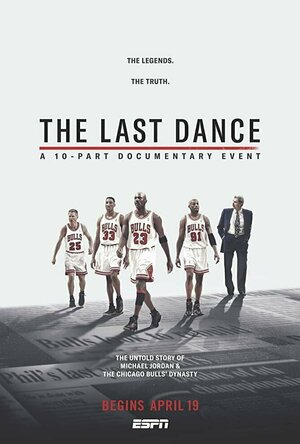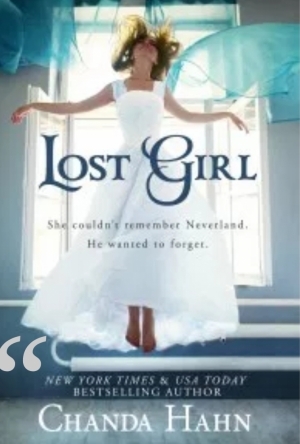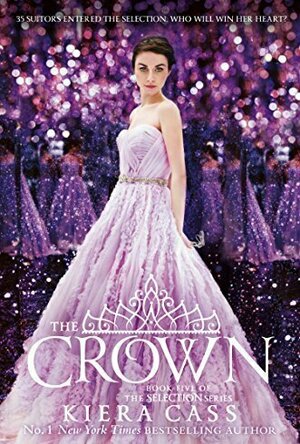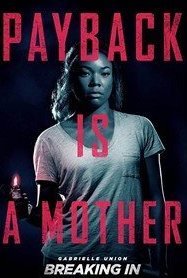Smashbomb (4687 KP) created a post in Smashbomb Partners
Dec 3, 2020
Kirk Bage (1775 KP) rated The Last Dance in TV
Aug 6, 2020 (Updated Aug 6, 2020)
Basketball for me has never really been a thing. To be honest, I barely understand the rules beyond the basics. It just wasn’t something that was on British TV that often as I grew up, the Olympics being an exception. The skill level (and height above Sea level) needed to be good enough for NBA glory does not escape me though, and neither has the exceptional career of Michael Jordon, who is a clear contender for greatest sportsman of all time, in any sport.
What I do enjoy though is the drama of over-coming hurdles and records against all the odds. The underdog story really appeals to me, as does the story of an older athlete doing it one last time, when no one thinks it’s possible. The Last Dance is exactly that. But not told by actors in a Hollywood way, like the wonderfully under-rated Miracle starring Kurt Russell. This is a documentary, in ten parts, with the real guys, and some of the most comprehensive archive material you’d ever want!
In theory, the tale is about the whole team, and their final fling at winning a title before knowing the aging gang would be disbanded, with the key figures forced into retirement. But, it is about Jordan, of course it is. And as a document of a rise to fame, and how the man responded to that fame and increased pressure, it is simply the best sports documentary yet to be made.
Told in parallel timelines of the final year juxtaposed with the backstory of the previous 20 years, it shows in exquisite detail how a franchise was built, maintained and taken to the heights of being the greatest ever to play the game. There are tantrums, fall outs, walk outs, no shows, injuries, and some mind-bending successes riding on single moments of genius.
The main voices of Jordan himself, as he sits in retirement with a cigar and a single malt, Scottie Pippin, and bad boy Dennis Rodman, are in parts fascinating, eloquent and revealing. Even after many years have passed, the emotion of big moments and issues is still fresh. We see the joy, the pride and the exhilaration, but also the regret, the grudges and the pain. It shows every angle of what being an athlete at the very top means, and exposes what kind of mentality you have to have to be that person. To be a champion.
As with me, it really helps with the cliffhanger drama of it if you don’t remember, or never knew at all, the result of that “last dance” season in ’98. It also helps if watching sport raises the pulse, but I wouldn’t say it is essential, as it all plays like an ten part series full of drama, betrayals and gasp out loud moments. Ten hour long episodes is a lot. But this incredible production never out stays its welcome. Some acheivement, and testament to what a charismatic figure Jordan was and is on the context of sport history.
Of course, not every hero is a hero every minute of his life. And that is my final reason to recommend it. See for yourself what kind of personality virtual gods like these invent for themselves. Utterly compelling TV.

POP! Slots – Casino Slot Games
Games and Entertainment
App
From the makers of myVEGAS Slots and my KONAMI comes POP! Slots! Take the Vegas experience with you...

RTÉ Player International
Entertainment
App
Explore the best of Irish television and watch RTÉ Player International abroad. Enjoy instant...

Creating Wealth Real Estate Investing with Jason Hartman
Podcast
Survive and thrive in today's economy. With over 600 episodes produced, business and investment guru...
Christina Haynes (148 KP) rated The lost girl in Books
Feb 10, 2018
328 pages
Fantasy / Young Adult / Retelling
Sypnosis:
Wendy doesn't remember anything about Neverland—or the experiments done to her there as a child. Seven years later, all she wants is a normal life, but shape-shifting shadows plague her dreams and turn her life into a waking nightmare. When the shadows attack at a football game and a boy disappears right in front of her, she realizes these wraith-like shadows are real. They’re not just haunting—they’re hunting.
A mysterious boy named Peter, his foul-mouthed sidekick, and a band of misfit boys intervene before Wendy faces a similar fate. But can they trust Wendy enough to take her to Neverwood Academy and reveal all of their hidden secrets when she's hiding a secret of her own, or will the dreaded Red Skulls find her and drag her back to Neverland?
Main characters:
Wendy Darling
Peter Pan
Tink
Jax
Red Skulls
Main events:
Neverland is a place where these orphans live. There they are experimented on and given powers by the Doctors who are ordered by the Red Skulls. When the Doctors no longer want to be apart of the experiments they decided they need to help save as many children as they can, including a girl called Wendy. But Wendy drowns in the process of escaping.
Ten years later Wendy is alive and well, except she sees shadows and thinks they are after her. Which her adoptive parents believe that she may be mad, they plan on taking her back to the mental hospital, where she was before, called Wonderland.
After she meets the Lost Boys. they take her under their wing because if the shadows are out there looking for her, then she is in danger. The only place now safe for her is with them. But danger is on its way in the form of the Red Skulls and their leader Hook, because he is after Wendy.
Most exciting part:
Probably when you see inside Neverwood Academy and meet the Lost Boys.
My favourite part:
I don’t really know my favourite part, but I liked reading about Peter Pan and the other characters from the original story in a different way.
My summary:
This book is about Wendy and Neverland, but not the Neverland we all know and love. This Neverland is a place where orphan children live. A place where children are experimented on, a place where they are given powers. Wendy feels that she is going crazy and her parents think this too. Because she can see shadows and not the kind we all see. She see’s them all gather around her and she is scared.
At a football game at her school, she there meets Peter Pan and realises that seeing the shadows is normal. Well normal for them at least.
Peter tells her a bit about Neverland and the Red Skulls. But not too much, as Wendy isn’t a Lost 'Girl' like Peter and the Lost Boys. Because Wendy died and Peter saw her die, he doesn't believe that Wendy is the same girl as the one he knew before. So Wendy is an outsider, who happens to see shadows. The Lost Boys are in hiding from the Red Skulls because they all escaped from Neverland. However, they are more interested now in Wendy.
My Review:
I really liked the idea of this book, I love fairytale retellings and Peter Pan. I loved the idea of the story and the characters within the book and Chanda Hahn did a great job at not changing the personalities of the characters so Tink who is Tinkerbell didn't suddenly become a sweet dark haired tall girl, she had the same sarcastic sassy personality
But the ending for me was a bit of a letdown. The ending basically brings the whole book round into a big circle, so in a way, nothing needed to happen.
I really loved Chanda Hahn’s ‘Unfortunate Fairytale Series’ and I still do. But I honestly thought this book would have been better.
Rating:
3 ★ – NOT A BAD BOOK
I loved the idea of this story, but there was definitely something about it I didn’t like. I've bought the next book ‘Lost Boy’ so I’m hoping I get a better feeling from this one.
Love, Christina ?
Hazel (1853 KP) rated The Crown (The Selection, #5) in Books
Dec 17, 2018
<i>This ebook was provided by the publisher via NetGalley in exchange for an honest review </i>
So here it is, the latest (final?) book of <i>The Selection</i> series by popular young adult author Kiera Cass. <i>The Crown</i> continues from the exact place that the previous book, <i>The Heir</i>, left off, with Queen America having suffered a heart attack, and Eadlyn’s twin brother running off to France after secretly marrying. Regardless of the personal troubles, the royal family must keep on running the country of Illéa, however this means that great responsibilities are now resting on teenage Eadlyn’s shoulders.
Readers will already know that the wife, or in this instance husband, of the heir of the throne is chosen through a selection process. Thirty-five suitors were randomly selected from thousands of applicants to try and win the princess’ heart. The boys have been narrowed down to six, but Eadlyn has more pressing issues to worry about. Naturally she is concerned about her mother’s health and sad about being separated from her twin, but the biggest thing on her mind is being named regent whilst her father stays by his wife’s bedside. Eadlyn must temporarily rule like a queen, which is easier said than done.
There is less focus on the selection process in <i>The Crown</i> than there was in the first three novels – where America was eventually selected to become Prince Maxon’s bride. Primarily this is because Eadlyn’s heart is not in it. She does not love any of the elite – the top contestants – and it is only for public appearances that she continues with the game. What Kiera Cass emphasizes in this novel is that being a princess is not all parties and money and power. Instead it is hard work, physically and emotionally exhausting, and almost impossible to be your own person. Initially Eadlyn was viewed as a cold-hearted, spoilt child, but her new responsibilities open her eyes to the ways of the world, revealing her better nature to the people of Illéa.
Unfortunately it needs to be said that <i>The Crown</i> does not quite live up to the rest of the books in the series. The idea of a selection process feels old and over done, and Eadlyn’s personality does not quite work for a romance novel. The conclusion of the book appeared to happen a bit too suddenly, and also rather conveniently. What should have resulted in protest or at least disappointment for a few of the characters became something that was easily accepted instead. Not entirely realistic.
On the other hand, the ending is what most readers will have wished for, myself included, so must not complain too much. It is great to be reunited with the lovely characters, particularly the thoughtful and kind selected suitors, and Eadlyn’s sweet younger brothers. They are the types of people you would feel blessed to know in real life. All in all, <i>The Crown</i> is likely to put a smile on your face.

Age, Sex, Location
Book
A hilarious and refreshingly honest foray into modern dating, Age, Sex, Location is Bridget Jones's...

If you’re happy & you know it - Sing Along
Education and Games
App
-> Full Interactive Song + 9 Amazing Educational Games Inside -> Top HD graphics and superb musical...
Darren (1599 KP) rated Breaking In (2018) (2018) in Movies
Jun 21, 2019
With Shaun locked out and her children being held captive by the thieves, she will do anything to save her children, not caring what the men want, this does become a battle of a mother that will do anything versus thieves that won’t stop for anything.
Thoughts on Breaking In
Characters – Shaun is a mother of two children that is tidying up the affairs of her late father, she thinks her weekend will just be tidying up his house, but she soon shows that she has a few skills picked up from her father, she will play a cat-n-mouse game with a group of thieves that are holding her children hostage, Shaun will prove herself as somebody smarter than the thieves, showing a mother’s love will overcome any plan. Eddie is the leader of the thieves, he remains calm and in control, even if his men can get out of hand, he only wants the money, getting pushed into difficult decisions. Duncan is the loose cannon of the thieves, he doesn’t want to leave any witnesses to the crime they are committing. Jasmine is the eldest daughter that needs to protect her little brother from the situation, even if the two have a bickering relationship.
Performances – Gabrielle Union in the leading role is great, she brings us a strong powerful mother that isn’t going to let any man take advantage of her family. Billy Burke does bring the required calmness to his character which is everything needed, with Richard Cabral bring his own unhinged character to life to just about step away from the generic normal one. Ajiona Alexus and Seth Carr fill the children roles which in the works very well as they feel like they could easily be brother and sister.
Story – The story here follows a mother that will do anything to get her children to safety after their home gets invaded by a group of criminals searching for money. This is a home invasion film, it doesn’t need to break away from the normal in anyway, we know the formula, with this one putting the spin on the mother being separated from her children, we have the discussion of power between the criminals and mother, which is an important scene. We see how the mother might have a few more tricks up her sleeves that first thought. This is everything you expect without needing to make anything complicated, making it an easy watch.
Action/Crime – The action is restricted because of the separation between the characters, but when we need it, we get action we need, the crime story does follow how the thieves operate, though we don’t learn everything about the father’s situation in the criminal world.
Settings – The film is set in one location which is the house that has the ability to hold people out or keep people in, this helps build the battle between mother and thieves.
Scene of the Movie – Losing control.
That Moment That Annoyed Me – Not truly learning about the Shaun’s father previous life as a criminal.
Final Thoughts – This is a by the book home invasion film, it does give us plenty of entertainment and is above the average in the sub-genre.
Overall: Home invasion above the rest.
https://moviesreview101.com/2019/06/20/breaking-in-2018/




Hadley (567 KP) Dec 4, 2020
Kirk Bage (1775 KP) Dec 7, 2020